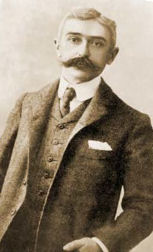This article first appeared in the Jul/Aug 2012 issue of World Gaming magazine.
A competition rich in history and tradition, the Olympic Games are a whirlwind of action and excitement where the world’s finest athletes showcase incredible displays of sporting prowess and courage to win glory and gold for their country.

Once every four years the world goes sports mad. After a lengthy build-up where athletes, coaches, officials and the host city all frantically prepare, their efforts culminate in the gigantic sporting spectacle known as the Olympic Games – but when did it all start?
The first ancient Olympic Games can be traced back to 776 BC and were dedicated to the Olympian gods. These early Games were staged on the ancient plains of Olympia and continued for nearly 12 centuries, until killjoy Emperor Theodosius decreed in 393 AD that all such “pagan cults” be banned. For the better part of 1,500 years the Games lay dormant, and these Grecian athletic pursuits and demonstrations of perfect manliness became the stuff of legend.

Baron Pierre de Coubertin
In a sense, not much has changed. Our contemporary athletes stand to gain the same social stature as the athletes back in the good old days of ancient Greece, and need to apply themselves with as much dedication to their craft. Ancient Olympians had to take an oath swearing they had trained for 10 months prior to the Games before gathering for preliminary trials, where only the worthy would gain selection for the big event.
Contemporary competitors swear by the modern Olympic oath, take part in selection and qualifying events, and we suspect more than a few make offerings to the gods of their respective sports and pray for victory.
There is even a similar reception for the victors of competition, and while the original Olympians only awarded accolades for first place we are a little softer these days and recognize second and third. Unlike the modern Games ancient Olympians did not award medals. The victorious athlete received their award immediately after the competition. The herald would announce their name and a Hellanodikis (Greek judge) would place a palm branch in their hands while the adoring spectators cheered and threw flowers. Red ribbons were tied on their head and hands as a mark of victory.
Later, at the elevated vestibule of the temple of Zeus, the herald would loudly announce the name of the Olympic winner, their father’s name, and their homeland. The Hellanodikis would then place the sacred olive tree wreath, or kotinos, on the winner’s head, and off they would trot to a hero’s welcome and a life of leisure in their hometown.
So as you watch the Games of the XXX Olympiad from London, imagine the athletes of ancient Greece doing their thing in the buff and be thankful (or not) that in this day and age we favor clothing if only as a way of avoiding some awkward physical moments.







